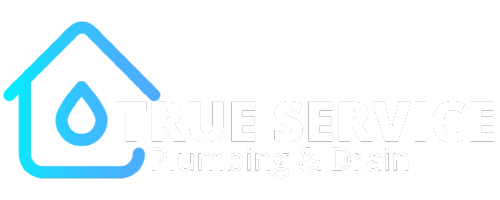If you’ve ever asked yourself, why are my pipes making noise?, you’re not alone.
Noisy pipes can be alarming, especially when you hear banging, whistling, or rattling sounds echoing through your home.
These noises can indicate anything from high water pressure to loose fittings or even trapped air.
Ignoring strange pipe noises could lead to costly plumbing repairs down the road.
In this guide, we’ll break down the most common causes of noisy pipes, when to be concerned, and how to fix the problem — whether it’s a simple DIY adjustment or a job for a professional plumber.
Common Types of Pipe Noises and Their Causes
Different sounds coming from your plumbing system can point to specific issues. Below are the most common noises and what they might mean:
1. Banging or Knocking Sounds (Water Hammer)
- Cause: Sudden water stoppage creates a shockwave in the pipes.
- Common culprits: Quick-closing valves in washing machines, dishwashers, or faucets.
- Solution: Installing a water hammer arrestor or draining the system to remove air pockets.
2. Whistling or High-Pitched Noises
- Cause: High water pressure or a partially closed valve.
- Signs: The sound comes from specific fixtures, like faucets or showerheads.
- Solution: Check for clogged aerators, clean out sediment, or adjust the pressure regulator.
3. Humming or Vibrating Pipes
- Cause: Excessively high water pressure.
- Signs: The noise intensifies when water flows at full force.
- Solution: Lower the pressure using a pressure-reducing valve (PRV) to avoid long-term pipe damage.
4. Rattling or Shaking Pipes
- Cause: Loose pipe brackets or unsecured pipes inside walls.
- Solution: Secure pipes with additional brackets, foam padding, or insulation.
5. Gurgling or Bubbling Noises
- Cause: Trapped air in the pipes or a partial blockage in the drain.
- Signs: Gurgling sounds after flushing a toilet or when running a sink.
- Solution: Vent pipes properly or use a drain cleaner to remove blockages.
6. Dripping Sounds
- Cause: A slow leak in a faucet, pipe, or toilet.
- Solution: Identify the source of the leak and replace worn-out washers or seals to prevent water waste and potential damage.
When Should You Be Concerned About Noisy Pipes?
While some pipe noises are normal, others could signal a bigger problem.
Be on alert if:
- The noise is persistent and worsening over time.
- You hear loud bangs even when water isn’t running.
- Water pressure is fluctuating along with the noise.
- Visible leaks, corrosion, or damp spots appear on walls or ceilings.
- The noise is accompanied by reduced water flow or slow drains.
If any of these red flags sound familiar, it’s time to take action before a minor issue turns into a plumbing disaster.
How to Fix Noisy Pipes: DIY and Professional Solutions
Depending on the cause, some noisy pipe problems can be fixed with simple adjustments, while others require professional intervention.
1. Reducing Water Hammer
- Shut off the main water supply.
- Open all faucets to drain the system and release trapped air.
- Close the faucets and turn the water back on slowly.
- If the problem persists, install a water hammer arrestor.
2. Lowering High Water Pressure
- Use a water pressure gauge to measure your home’s PSI.
- If it exceeds 60 PSI, adjust the pressure regulator (if your home has one).
- If you don’t have a regulator, consider installing one to protect your plumbing.
3. Securing Loose Pipes
- Check under sinks and behind toilets for exposed pipes.
- Use pipe brackets or clamps to secure loose pipes to walls.
- Wrap foam pipe insulation around pipes to prevent vibrations.
4. Cleaning or Replacing Faucet Components
- Remove the faucet aerator and clean out debris or mineral buildup.
- If a faucet or valve is whistling, replace worn-out washers or cartridges.
5. Addressing Air Pockets and Drain Issues
- Run all faucets for a few minutes to flush out air pockets.
- If gurgling sounds persist, check the vent pipes for blockages.
- Use a plumbing snake or enzyme-based drain cleaner to clear partial clogs.
When to Call a Professional Plumber
Some plumbing issues require professional expertise to prevent further damage.
Consider calling a licensed plumber if:
- DIY fixes don’t resolve the issue.
- Water leaks or pipe corrosion are visible.
- Water pressure is dangerously high or too low.
- Pipes make loud noises even when no water is running.
- You live in an older home with outdated plumbing.
A professional can assess the situation, diagnose the problem, and provide long-term solutions to keep your pipes running smoothly.
Conclusion
Noisy pipes are more than just an annoyance — they can be an early warning sign of bigger plumbing issues.
By understanding the causes behind pipe noises and taking the right steps to fix them, homeowners can prevent costly repairs and protect their plumbing system.
If you’re experiencing persistent plumbing noises and need expert assistance, True Service Plumbing is here to help.
Noisy Pipe Repairs with True Service Plumbing
If you’re dealing with loud, clanging, or whistling pipes, don’t ignore the warning signs.
True Service Plumbing provides expert plumbing services in Toronto and the GTA, ensuring your home or business stays leak-free and efficient.
Our licensed professionals handle everything from water pressure adjustments to pipe repairs and replacements.
Don’t let noisy pipes disrupt your peace of mind. Contact True Service Plumbing today for a professional inspection and reliable solutions!


